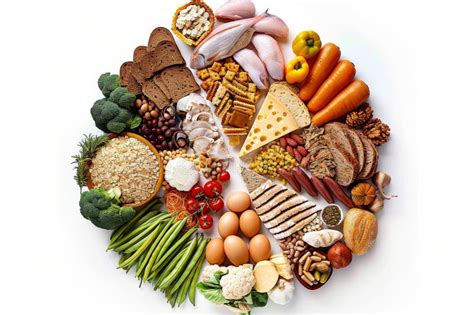Fuel for peak performance: best daily nutrition for energy & focus?

In our fast-paced world, maintaining high energy levels and sharp mental focus throughout the day is crucial for productivity, well-being, and overall peak performance. While factors like sleep and exercise play significant roles, the cornerstone of sustained energy and cognitive function lies in our daily nutritional choices. What we eat directly impacts our mood, concentration, and physical stamina. This article will explore the best daily nutrition strategies to fuel your body and mind for optimal performance.
The Foundation: Balanced Macronutrients
To keep your engine running smoothly, a balanced intake of macronutrients—carbohydrates, proteins, and fats—is essential. However, the type of macronutrient matters immensely.
Complex Carbohydrates for Steady Energy
Forget the myth that all carbs are bad. Complex carbohydrates, found in whole grains (oats, brown rice, quinoa), legumes, and starchy vegetables (sweet potatoes), are your body’s preferred energy source. They are digested slowly, providing a gradual, sustained release of glucose into the bloodstream, preventing the sharp peaks and crashes associated with simple sugars. Aim for these in most meals to keep your brain alert and muscles ready.
Lean Proteins for Satiety and Repair
Protein is vital for muscle repair, hormone production, and maintaining stable blood sugar levels, which prevents energy slumps. Include lean protein sources like chicken, fish, eggs, tofu, lentils, and Greek yogurt in every meal. Protein also contributes to satiety, helping you feel full and focused for longer periods.
Healthy Fats for Brain Power
Healthy fats are critical for brain health, hormone production, and nutrient absorption. Don’t shy away from sources like avocados, nuts, seeds (chia, flax), olive oil, and fatty fish (salmon, mackerel) rich in Omega-3s. These fats provide a concentrated source of energy and support cognitive function, enhancing memory and focus.

Micronutrients: The Tiny Titans of Energy and Focus
While macronutrients provide the bulk of your energy, micronutrients—vitamins and minerals—act as cofactors for countless bodily processes, including energy production and neurotransmitter synthesis.
B Vitamins: The Energy Boosters
B vitamins (B1, B2, B3, B5, B6, B7, B9, B12) are crucial for converting food into energy. Deficiencies can lead to fatigue and impaired cognitive function. Find them in whole grains, leafy greens, eggs, dairy, and lean meats.
Iron: Oxygen Delivery for the Brain
Iron transports oxygen throughout the body, including to the brain. Low iron levels can cause fatigue, weakness, and poor concentration. Good sources include red meat, spinach, lentils, and fortified cereals.
Magnesium: Muscle and Mind Relaxation
Magnesium is involved in over 300 enzymatic reactions, including energy production and nerve function. It can help reduce fatigue and improve sleep quality, which directly impacts daytime focus. Rich sources include dark leafy greens, nuts, seeds, and dark chocolate.
Omega-3 Fatty Acids: Brain’s Best Friend
Beyond being healthy fats, Omega-3s (especially DHA and EPA) are vital for brain structure and function, reducing inflammation and supporting neurotransmitter activity. Fatty fish, walnuts, and flaxseeds are excellent sources.

Hydration: The Unsung Hero of Performance
It’s easy to overlook, but dehydration, even mild, can significantly impair cognitive function, mood, and energy levels. Your brain is largely water, and proper hydration ensures optimal blood flow and nutrient delivery to brain cells.
Aim to drink plenty of water throughout the day. Herbal teas and water-rich fruits and vegetables also contribute to your fluid intake. Keep a water bottle handy as a constant reminder.

Strategic Eating: Timing and Frequency
Beyond what you eat, when you eat also plays a critical role in sustaining energy and focus.
Regular Meals and Smart Snacking
Instead of three large meals, consider smaller, more frequent meals and snacks every 3-4 hours. This helps stabilize blood sugar, prevents drastic energy dips, and keeps your metabolism active. Prioritize a balanced breakfast to kickstart your day.
Avoid Overeating
Large, heavy meals, especially those high in simple carbohydrates and unhealthy fats, can divert energy to digestion, leading to post-meal sluggishness or a “food coma.” Opt for moderate portions to maintain alertness.
Foods and Habits to Limit for Optimal Performance
Just as some foods boost performance, others can hinder it.
Minimize Processed Foods and Sugary Drinks
These offer quick energy spikes followed by inevitable crashes, negatively impacting mood and concentration. They often lack essential nutrients and contribute to inflammation.
Moderate Caffeine Intake
While a morning coffee can be beneficial, excessive caffeine can lead to jitters, anxiety, and disrupt sleep patterns, ultimately depleting your energy over time. Listen to your body and know your limits.

Putting It All Together: A Daily Blueprint
Consider integrating these principles into your daily routine:
- Breakfast: Oatmeal with berries, nuts, and a scoop of protein powder; or scrambled eggs with whole-grain toast and avocado.
- Lunch: Large salad with lean protein (chicken, chickpeas), various vegetables, and an olive oil vinaigrette; or quinoa bowl with roasted vegetables and salmon.
- Dinner: Baked fish or lean meat with a side of steamed greens and sweet potato; or lentil soup with whole-grain bread.
- Snacks: A handful of almonds, an apple with peanut butter, Greek yogurt, or vegetable sticks with hummus.

Conclusion
Achieving peak performance isn’t about quick fixes or restrictive diets; it’s about building sustainable, nutrient-rich eating habits that consistently fuel your body and mind. By prioritizing complex carbohydrates, lean proteins, healthy fats, a spectrum of micronutrients, and consistent hydration, you can unlock sustained energy, sharpen your focus, and enhance your overall well-being. Make conscious food choices, listen to your body, and transform your daily nutrition into a powerful tool for success.









